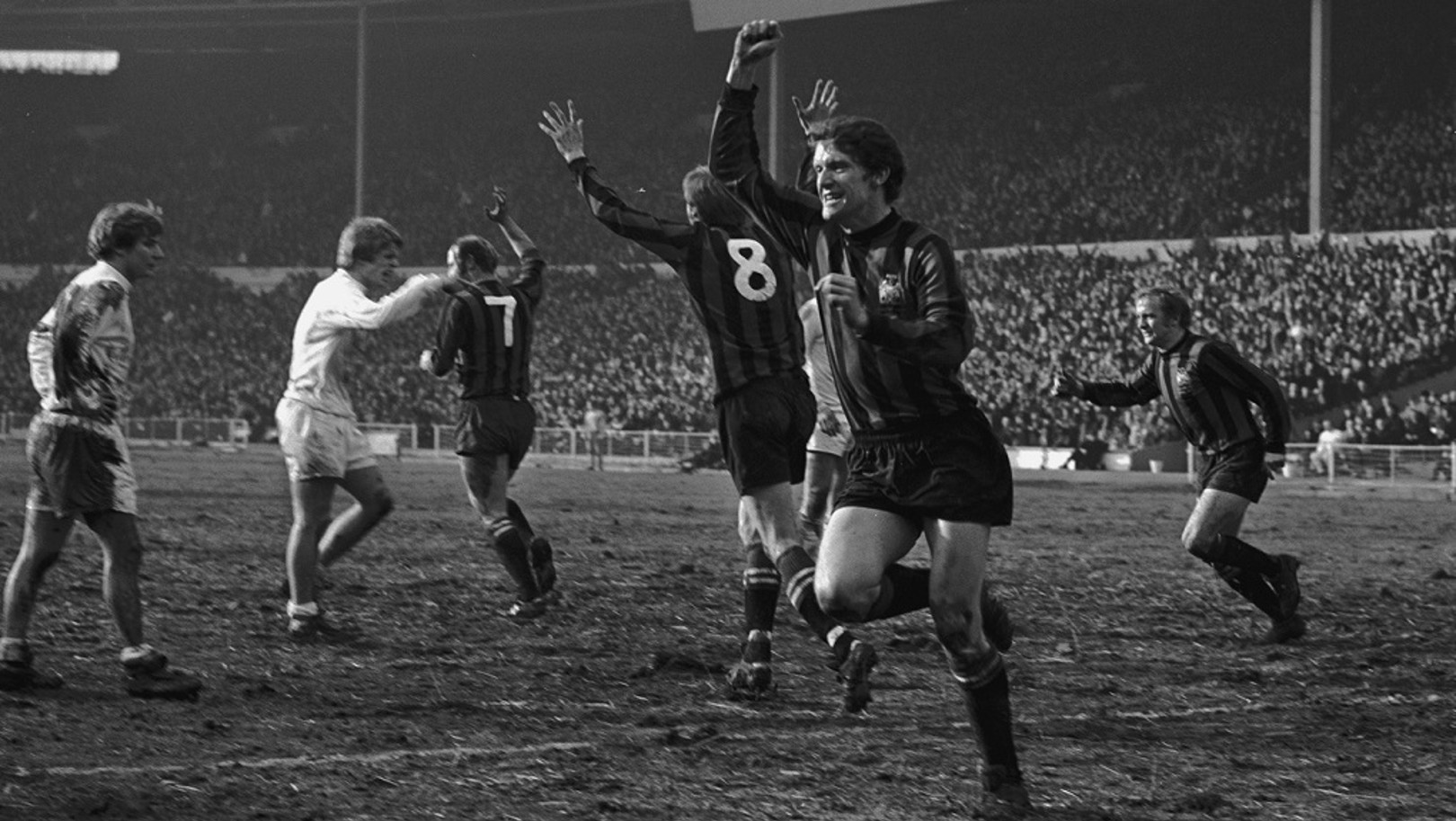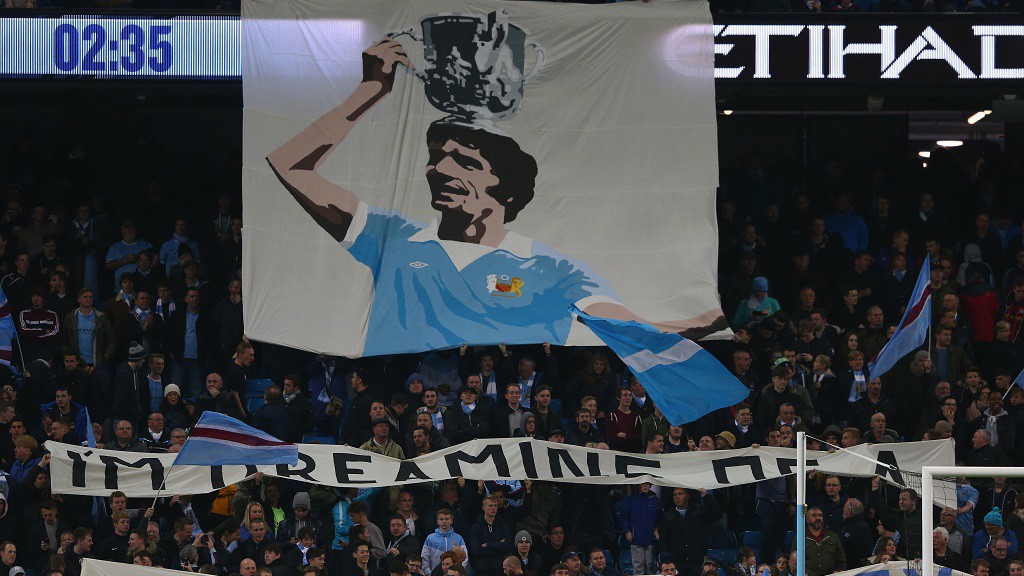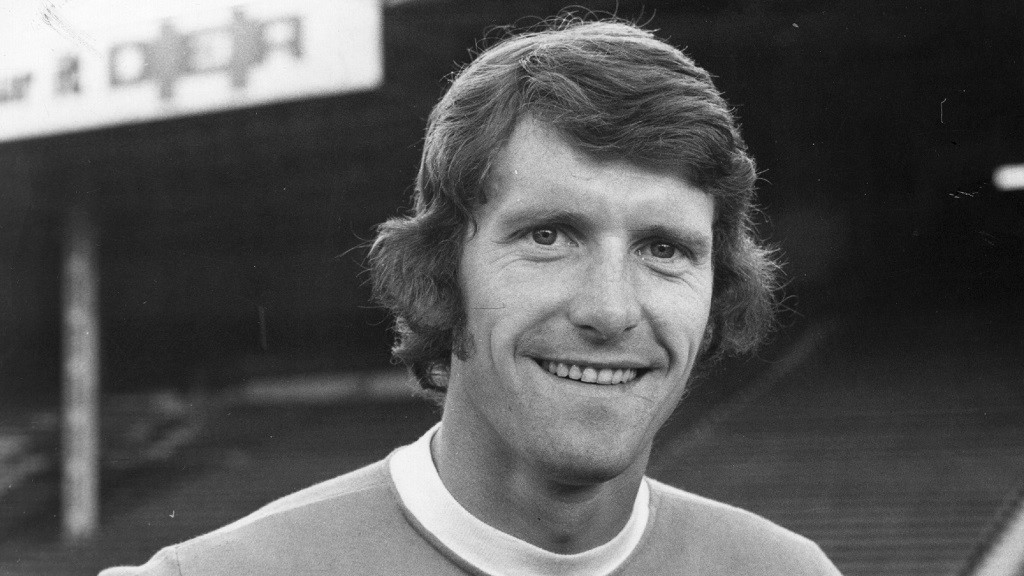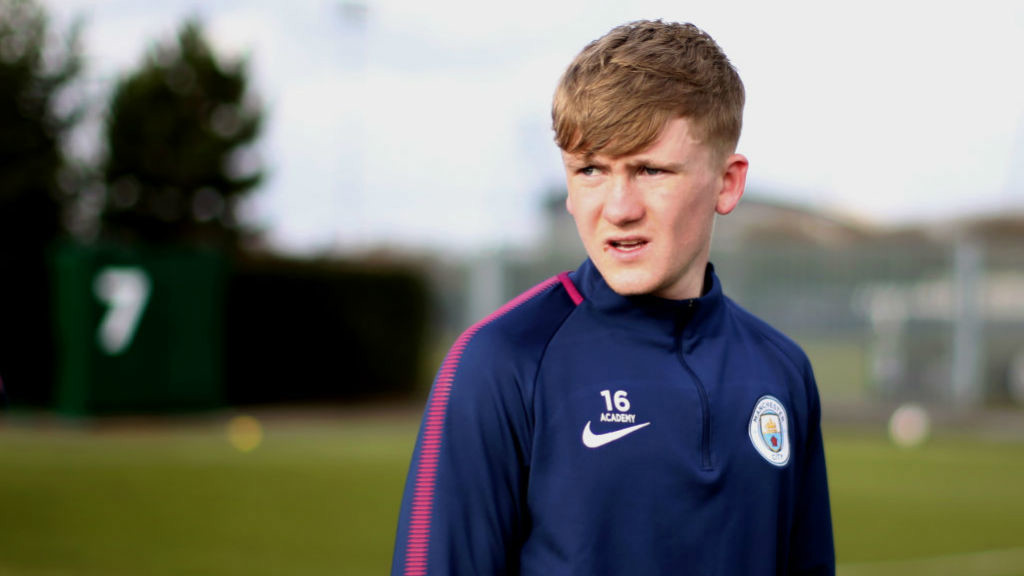The former City skipper spent 16 years with the Blues, making 558 appearances between 1962 and 1978 and leading the Club to the last piece of silverware for 35 years prior to the 2011 FA Cup triumph.
Doyle’s dislike of United was legendary, and journalists were always assured of a tasty headline as the big match approached. Both he and Mike Summerbee loved nothing more than to wind up the Reds and it’s fair to say they did it extremely well.
Doyle was only 64 when he passed away in June 2011, but he had the comfort of at least having seen his beloved Blues end the long wait to lift a trophy - he was no longer ‘the last captain to lead City to success’.
As ghostwriter to his 2004 autobiography ‘Blue Blood’, I got to know Mike and his family quite well over the 18 months the book took to complete. Doyle, who lived on Tameside at the time, revealed the story of how he eventually signed for City instead of Wolves who were close to securing his services under the nose of a host of local clubs – before scout Harry Godwin convinced the youngster his future lay in sky blue rather than black and gold.
Doyle’s true leaning could now flourish as a City player. Suddenly, United were public enemy No.1 and he relished playing the Reds at a time when the Blues bossed the Manchester derby, both home and away.
But it was a feeling of gross injustice that really set Doyle on a collision course with our cross-city neighbours and ignited a feud that resulted in a spell of police protection ahead of the clash of the Mancunian tribes.
Doyle and other members of the 1967/68 title-winning squad felt the Blues never quite got the credit they’d earned in the national media, and on a flight home from a European Cup Winners’ Cup semi-final with Schalke, the simmering resentment became something much greater.
Doyle recalled: “We lost the first leg of the semi-final 1-0, but we played magnificently. That same night, Manchester United had a match too, but it was a game of no importance in terms of trophies - I think it was a friendly, or a testimonial. When we boarded the plane for home at Düsseldorf airport next morning, we bought the papers, and the back-page headlines were about Manchester United, while our game - an important European tie, remember – warranted just a small piece on an inside page. That made me see red!
“I exploded to one of the reporters on the trip with us: ‘It’s ridiculous! How much longer are the City supporters going to stand for this?’ I carried on in the same vein, and that, I thought, was the end of it. I’d blown my top, had a rant and it was finished. But the next day in the newspapers my outburst received some prominence, and from then on it was always assumed that I really hated Manchester United. My feelings on the whole business had allowed me to get carried away, but there’s many a rash word spoken in a moment of frustration and I’d said quite a few!
“It didn’t go down at all well with a section of the populace in Manchester. During the course of the next week or two I found that some folk had it in for me, and they were ready to exact vengeance in their own way. I went to my car one day and found a dent in it with the aerial snapped off. I then had windows broken at my home, and I received some abusive letters. This sort of treatment continued sporadically for a few months, and then came the derby game against United. I’d been out with my wife for a meal, and when we returned home, there were two men hanging around the house. I thought it meant more trouble in store, so I told my wife to stay in the car and lock the doors as I fished under the dashboard and picked up a heavy torch. Then I got out, prepared for trouble.
“As I moved to meet the men, I recognised one of them. He was the local CID chief. He said: ‘Don’t jump to conclusions, and don’t panic. Can we go inside?’ I wondered what the heck was going on, and when we had sat down in the house he told me. A national newspaper had received a telephone call from a man saying that it was in the interests of my own safety if I didn’t play in the derby game at Old Trafford the following Saturday. ‘Otherwise, someone will take a shot at you!’
“The CID chief was obviously taking the threat seriously. ‘We’ll have a man on the door of your home at night,’ he said. And the longer I tossed and turned in bed, the more worried I became. I kept getting up and going to the window, and the sight of a police car outside didn’t help me to think of it as a joke. In fact, I began to think that some nutcase really was out to get me.
“When I went down to the ground for training, two policemen accompanied me; they went back with me when I returned home. The same thing happened on the Friday, and on the day of the game they remained unobtrusively in the background. Nothing happened though, and once the game had got under way I began to forget my fears as I concentrated on the job in hand and that seemed to be that.
“However, on the Monday morning, I received a phone call from the police to say that they had picked up a man the previous night. It seemed that they had a description of someone who was wanted for a ‘job’ and a man answering the description had been spotted making a call from a public phone box. When the policeman went to question the man, he dropped the phone and ran. One of the Panda car coppers gave chase and caught him, and the other picked up the dangling phone to see whom the man had been calling. The voice at the other end of the line told him it was a newspaper office — apparently the man had rung the office for a second time, to renew his threat to shoot me. But that really did mean the end of the affair, for I heard nothing further from the police or anyone else.
“There came a point where I began to get a bit sick of this ‘hatred’ business, but I had to live with the reaction it had sparked off. And I found myself wishing the whole thing had never been blown up when I attended the opening night at Colin Bell’s restaurant in Prestwich. Joe Mercer was there, and so were one or two of the United players. Joe collared me and said: ‘I want you to meet someone’... then he led me around a corner, and there were Sir Matt Busby and his wife. It was the first time in my life that I had met him to speak to, and in view of all the publicity about my dislike of Manchester United I felt tongue-tied.
“I didn’t know what to say or where to look. I felt about six inches tall. The United boss stood up and shook my hand. ‘I’m pleased to meet you,’ he said, smiling. He could see I was nervous and embarrassed, and he showed great understanding of my situation when he switched the conversation around to mutual friends and inquired about my family. He never mentioned the United business once. When I bumped into Joe Mercer later, he was chuckling away, mischievously.
A few years later, we had beaten United that season in both the derby matches – 4-0 at Maine Road and 4-1 at Old Trafford - and I learned another lesson from Sir Matt after our victory on their ground. We were waiting on the team coach, and our physiotherapist, Peter Blakey, had not arrived, so I nipped back up the stairs to tell him we were all set to go. On the way I passed Sir Matt, who shook my hand and said: ‘Well played.’ Then he added: ‘You’re putting it over us at the moment… but it all goes around in cycles. Our turn will come again.’ And, of course, he was right.”
Doyle’s autobiography ‘Blue Blood’ was well received and sold well back in 2004. During the writing and in various meetings in the years that followed, Mike spoke proudly of his grandson Tommy and how he hoped he might make it and maybe one day play for the Blues.
A couple of weeks back, Tommy signed his first professional contract with City. Mike’s Blue blood legacy, it seems, lives on.










